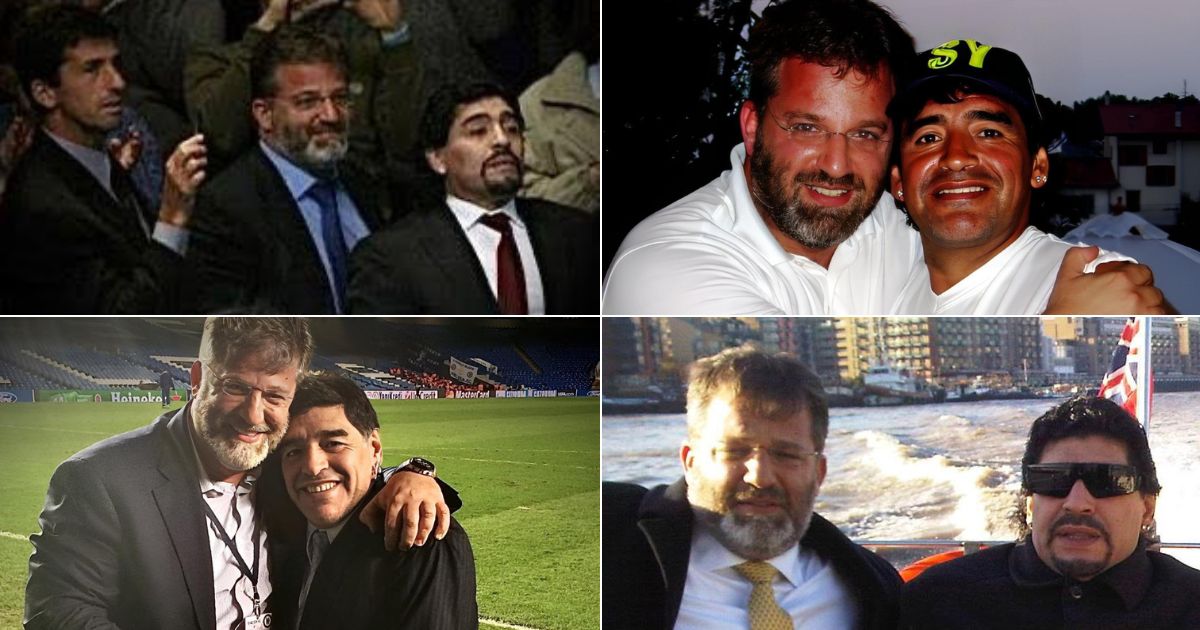
For years, I tried to interview him. He never agreed. I asked again and again, and he always declined, politely, with a simple, “No, why would I?”
Reserved and introspective, he never granted interviews – to me or anyone else. Discreet, polite, and always understated, he was there with Diego even in the whirlwind that followed the Argentinian icon on every step through British soil.
We’d crossed paths several times at events where Maradona was present, but we never managed a conversation beyond the briefest two-minute pleasantries. It was the legendary Claudio Caniggia, a mutual friend, who finally brought us together over dinner in London during one of his visits.
'Come over, and we’ll talk'
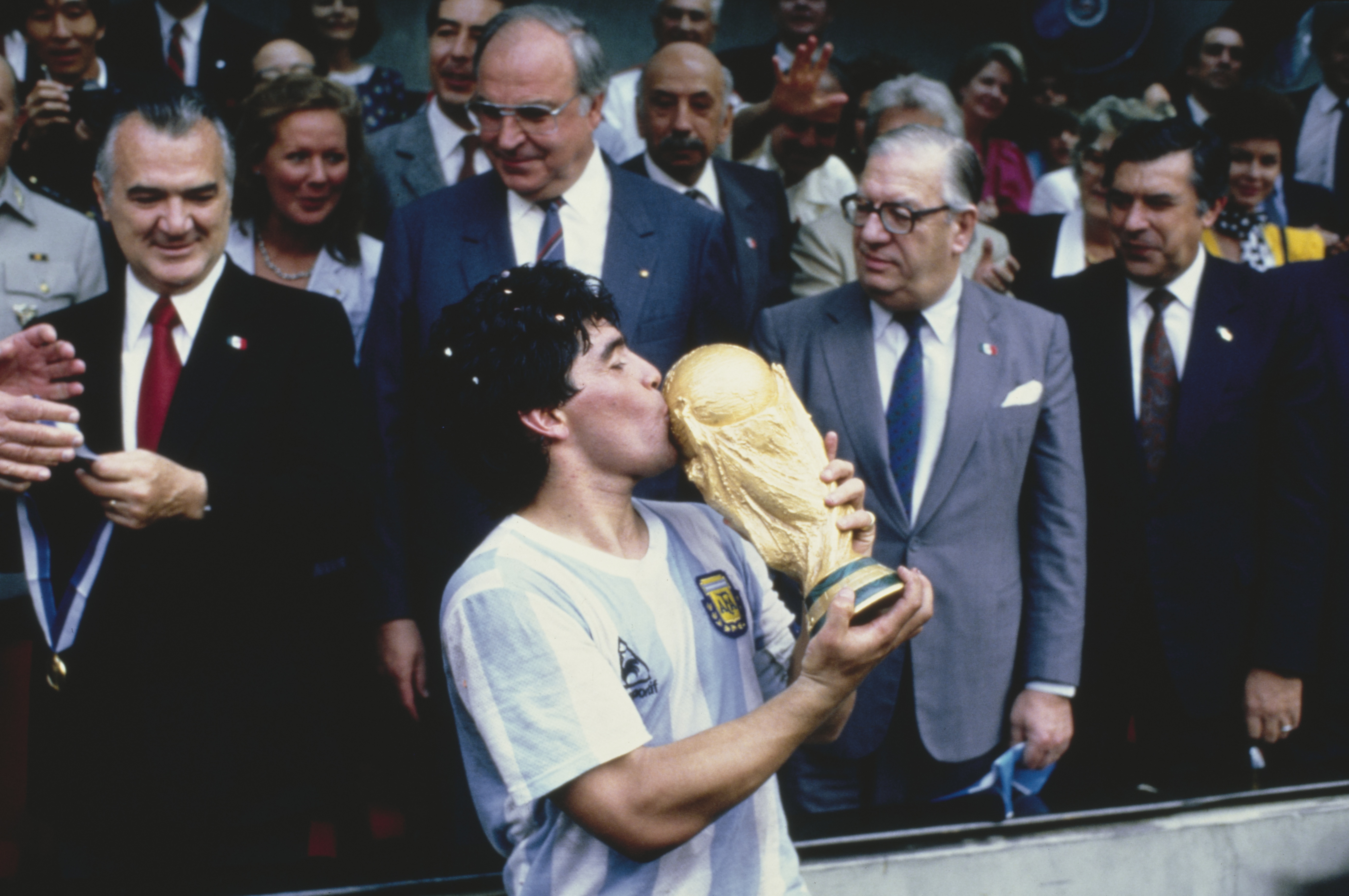
From then on, we kept in sporadic contact. Every year, I’d try again for an interview, with no success. Until the tragedy struck on 25 November 2020: Diego had passed away.
His heart had finally said enough. Days later, Walter and I exchanged messages, sharing a deep sadness. Finally, after years of failed attempts, I called him once more.
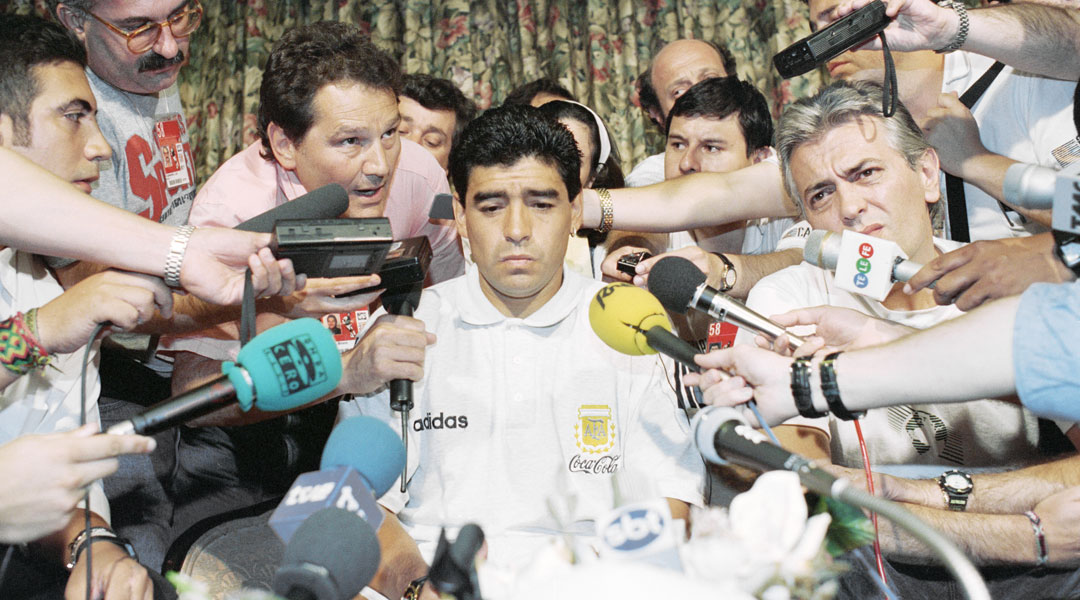
“I miss him terribly. Each anniversary of his death fills me with overwhelming sadness and emptiness. Come over, and we’ll talk,” he said, hinting that, perhaps this time, we’d finally have our conversation.
“Whenever Diego saw Walter or spoke of him, his face would light up. I know because he told me himself: Walter was the friend he trusted most,” Caniggia once confided to me. “Walter is a true friend, the sort you can really count on, always there when you need him,” Diego himself once told me in the streets of London.
This is Walter Soriano, a 56-year-old Argentine-British man. Born near Atlanta’s stadium in Buenos Aires, he was on the verge of becoming a professional footballer in his youth before life took him on a different path.
Today, he’s a successful real estate entrepreneur who settled in London in the late ’90s after a time in Israel. He had admired Diego Maradona, ranked at no.3 in FourFourTwo's list of the greatest footballers of all time, from the moment he saw him play for Argentinos Juniors against Atlanta when Diego was just starting his career in Argentina’s league.
They met through mutual friends, and from there, a genuine, noble, and profound friendship grew—one built on mutual admiration and true care.
In the world of football and show business, few manage to escape the scrutiny of the public eye. Diego Maradona, an admired and controversial figure alike, cultivated some of his deepest friendships out of sight.
Among these bonds was his connection with Walter Soriano, a discreet businessman and longtime friend whose relationship with Maradona, though hidden from the limelight, was essential to the football star’s social and personal life.
It’s November 2024, and we’re in central London, in Walter Soriano’s office. The walls are decorated with framed football shirts, several of which are Maradona’s, with heartfelt dedications that reveal his affection. I see personal photos of him with Diego, some of Diego’s own belongings, and incredible mementoes that stir up emotion.
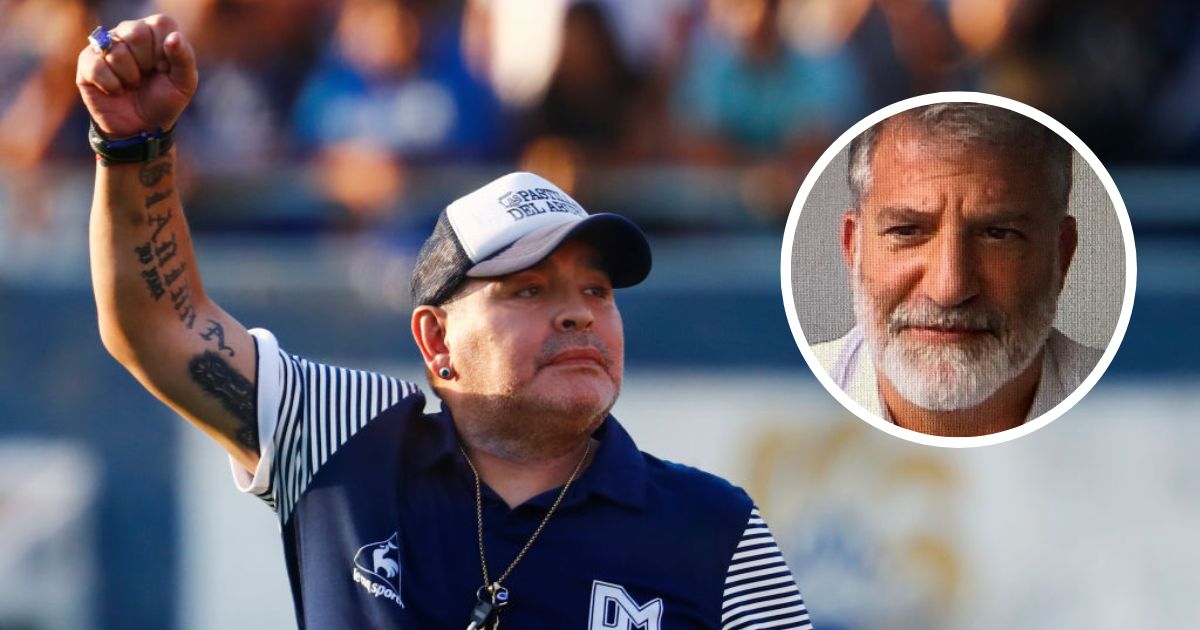
With a coffee in hand, Walter begins to share some reflections as he looks out over the imposing London skyline from his window. “I think I was a confidant for Diego during difficult times. Over the years, our friendship thrived in private, where we shared much more than just moments.
"I was with him through his triumphs and his downfalls, his laughter and his tears, supporting him in his personal crises and, in my own way, helping him find support amidst the chaos and despair. I think it also made a difference that he knew I didn’t need him financially, and I wasn’t interested in doing any business with him.
"Sometimes he’d let it slip… never, absolutely never, did I get anything material from my relationship with him… it was pure friendship, built on affection and mutual respect.”

The first time he saw Diego left an indelible mark on Soriano’s memory. “He was a very young boy, with a face full of spots and a head of curls that barely let you see his eyes.
"That day in 1977, standing by the fence of Atlanta’s pitch, I witnessed something that would change my life forever: I saw a young lad with unmatched bravery, skill, and vision, dominating the game in a way that was completely out of the ordinary.
You had to be truly brave to play like that, against men a decade older and much bigger. At that moment, I knew I was witnessing something unique.
"Watching Diego in action was an awakening, a life lesson. I felt how Diego projected himself beyond his difficulties, taking charge of his destiny with indescribable courage.
"But he was a hero in a more accessible way, more relatable for us young ones compared to Mario Kempes or Beto Alonso. He was also just a ‘kid,’ like we were!
"And, strange as it may sound, I felt that (greatly bridging the gap, of course), if he could challenge the world with his talent at that age, it wasn’t impossible to believe that with courage and determination, great things were within reach for anyone. I’d say he was, in a sense, my first inspiration.
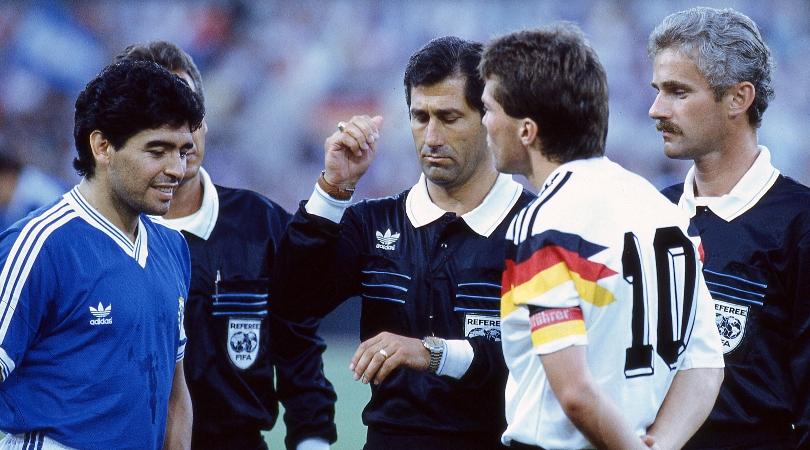
“Diego was so much more than ‘The Golden Boy’ or the ‘greatest footballer in history.’ He was a man of overflowing generosity, always surrounded by friends and close people, both in joyful times and in the toughest moments.
"He had unmatched charisma but also a deep vulnerability that few knew. Diego had a different side: that of a human being who found solace in his friendships, who needed to feel loved. He was addicted to that love…”
While Diego Maradona had a historic rivalry with England on the field, he always felt a special attraction to certain aspects of British culture, both on and off the pitch. He visited the country that gave birth to football several times, and Soriano was usually by his side.
“Diego was fascinated by London. He admired the respect for traditions and the politeness of the people. He loved the intensity and competitiveness, the packed stadiums, and he would always point out the nobility of English football.
In London, Diego found moments of peace and friendship, away from the cameras. “Sometimes we’d manage to close down entire stores, like Nike and Versace, just so Diego could enjoy his time without being disturbed,” Soriano recalls, “but other times, Diego wanted to shop like everyone else, right there among the people.
"He had unmatched charisma but also a deep vulnerability that few knew. Diego had a different side: that of a human being who found solace in his friendships, who needed to feel loved. He was addicted to that love…”
Walter Soriano
He’d say to me, ‘See what the English are like? Only here in London, even if they recognise me, they respect me, they let me be without invading me.’… It was a mix of humility and insecurity,” he says. “Sometimes, it was as if Diego didn’t grasp the impact he had on others, which only made him all the more human.”
With a natural ease, and in complete confidence, Walter shows me an endless collection of messages of all kinds. Handwritten letters, text messages, and others that were recorded. I must admit I’d never known this side of Diego, this warm way he had of expressing himself, with a rare respect. From everything I read, I’d say that besides his love for his friend in London, he admired him deeply, but above all, he respected him to an extraordinary degree.
"In 2008, during one of Diego’s visits, we arranged an interview for The Sun, with a significant fee attached. At that time, Diego really needed the money, so he agreed with the best of intentions. But the very next day, we were stunned to see a headline suggesting Diego had 'apologised' for the Hand of God goal – something he’d never said. Naturally, Diego issued a public denial as soon as he found out, and as a result, The Sun refused to honour the contract.
"The sum was considerable, and knowing Diego truly needed it, I offered to advance him the money myself, planning to recover it later through legal action. When I shared this plan with him, he cut me off with his characteristic, brotherly tone, saying, 'Mate, that would tarnish our friendship. I trust you fully; we’re in this together, and always will be.'
"Eventually, we won the case, and Diego received a substantial sum that included damages, costs, and interest. Remembering this moment still moves me deeply: Diego had placed complete trust in me and chose not to accept the advance, solidifying the bonds of trust and mutual respect that always defined our relationship.
"Then, in 2010, Diego turned 50 and generously invited me to celebrate with him and his family at his parents’ house. I remember the atmosphere so clearly: there was a strange, notable sense of solitude. It was just Diego, his parents, some of his siblings, his nieces and nephews, his daughters, and Claudia, coming and going. No one else. I’ll never forget that 50th birthday in Buenos Aires – a meaningful occasion, marked by an intimate and solitary feel that, despite its simplicity, left an unforgettable impression on me."
Soriano shows me a few personal photos from that day, and indeed, his description of the event is spot on, strikingly clear. There’s Diego sitting with his parents at a small table, a single candle on the cake in the middle…
“At one point, trying to lift his spirits, I asked what he’d like as a gift for his 50th… With his typical humility and a smile, he answered that his biggest wish was to meet the tennis greats: Federer, Nadal, and Djokovic. A bit taken aback but without a second thought, I promised to make it happen for him, as a personal and special gift.
"No matter how paradoxical it seems, Diego would sometimes have moments of insecurity, especially before meeting a ‘celebrity.’ For some reason, he would doubt if the interest was mutual as if he weren’t certain they’d want to meet him.
Walter Soriano
"No matter how paradoxical it seems, Diego would sometimes have moments of insecurity, especially before meeting a ‘celebrity.’ For some reason, he would doubt if the interest was mutual as if he weren’t certain they’d want to meet him. I was always amazed to see him get nervous or uncertain, wondering if he’d really inspire the same excitement that he felt. With incredulity, I’d say to him every time: 'Mate, believe me, it’s the other way around! They’re far more nervous about meeting you than you are about meeting them!' It was an incredible paradox that someone like him would worry about how he’d be received, when, in reality, everyone was genuinely eager to meet him and would then express that admiration in countless ways.
"And so it happened. The private meetings I arranged with Federer, Nadal, and Djokovic became a gift that filled him with profound emotion and a joy difficult to put into words. Watching him there, among tennis’s greatest, eyes shining like a child, was to see him fulfil a long-held dream. He never stopped reminding me; each time we met, he’d bring it up again with that genuine smile, as if he were reliving the moment over and over.
"We spent several New Year’s Eves together, in genuinely intimate gatherings: Diego, his parents, some of his siblings, his nieces and nephews, his daughters, and Claudia, coming and going. Diego always loved fireworks; he could spend hours setting them off in his parents’ garden. But here’s the catch: Doña Tota, his mother, would always warn us, 'Set off as many as you like, but no one leaves until it’s all cleaned up.'
"And so, when the fireworks were done, there we were: Diego, Don Diego (his father), and I picking up papers and remnants of fireworks in the garden under Doña Tota’s watchful eye. She wouldn’t go to bed until everything was spotless. I cherish those moments dearly, how much fun we had, and how Diego always made me part of that close, family intimacy.
"One of the most beautiful, memorable things I shared with Diego was undoubtedly those football matches we played in various friend tournaments, both in Italy and Argentina. We’d usually set up teams with two pros each, and there I was, as striker, playing alongside Diego and Claudio (Caniggia), no less.
"It was a near-surreal experience. Every minute was something sublime, pure excitement – not just for sharing the game with him, but for the magic in everything he did and created. The softness and precision with which he’d pass the ball. It would reach me as if it had been placed by his own hands. His vision of the game, his unique way of reading time and space, turned every move into something extraordinary.
Then, at the post-match barbecues, it was amazing to hear him recount every detail, reliving each move as though every second had been monumental, while most of us barely remembered the basics. Playing football alongside Diego was, without a doubt, one of the most wonderful and fantastic experiences of my life, one I still struggle to believe actually happened.
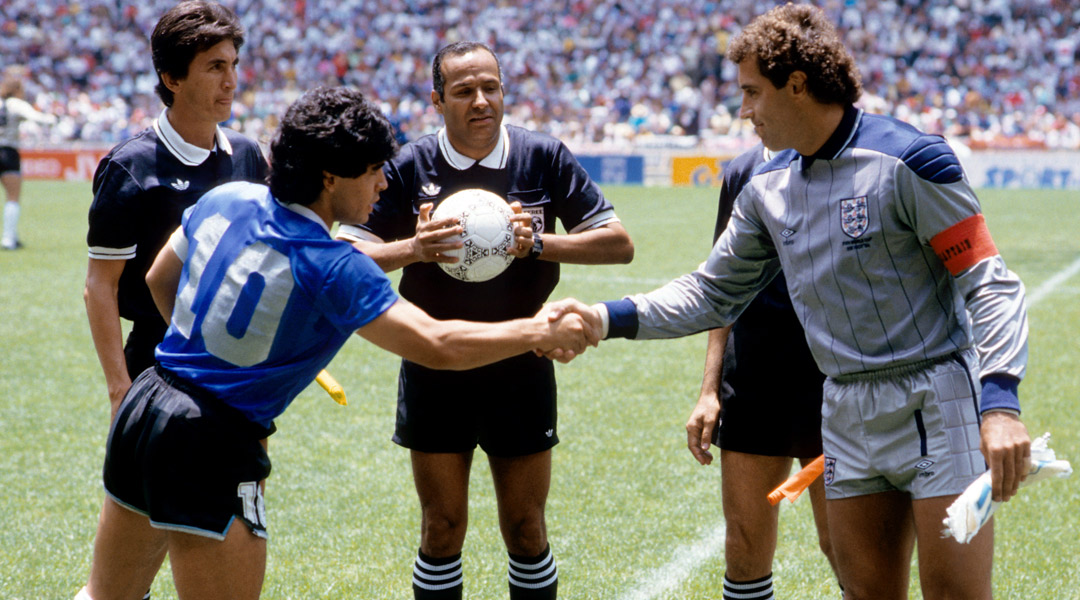
“I recently heard a quote from Jorge Valdano, who said, ‘Maradona is the most present absence I know. There isn’t a day that I don’t think of him.’ I truly believe it’s the most fitting description of how those of us privileged enough to know him up close feel today – those who were witnesses to the marvel he was, both as a friend and as a human being. I always felt he was a truly beautiful soul, someone who, in my view, held a spark of the divine…”
Near the end of our conversation, Walter pauses, thinks, and reflects: “His presence is so strong, so palpable, that sometimes it’s impossible to accept that he left in such an absurd way. How could someone blessed with so much love die in such utter loneliness? A soul like his deserved a more fitting farewell, something that matched all the love he inspired. It makes no sense that, despite being so loved, he left entirely isolated from those who truly cared about him.”
"Sometimes, looking at our photos, I say to myself: 'Rest easy, Diego, the real love is eternal… and love like that never fades.'"







